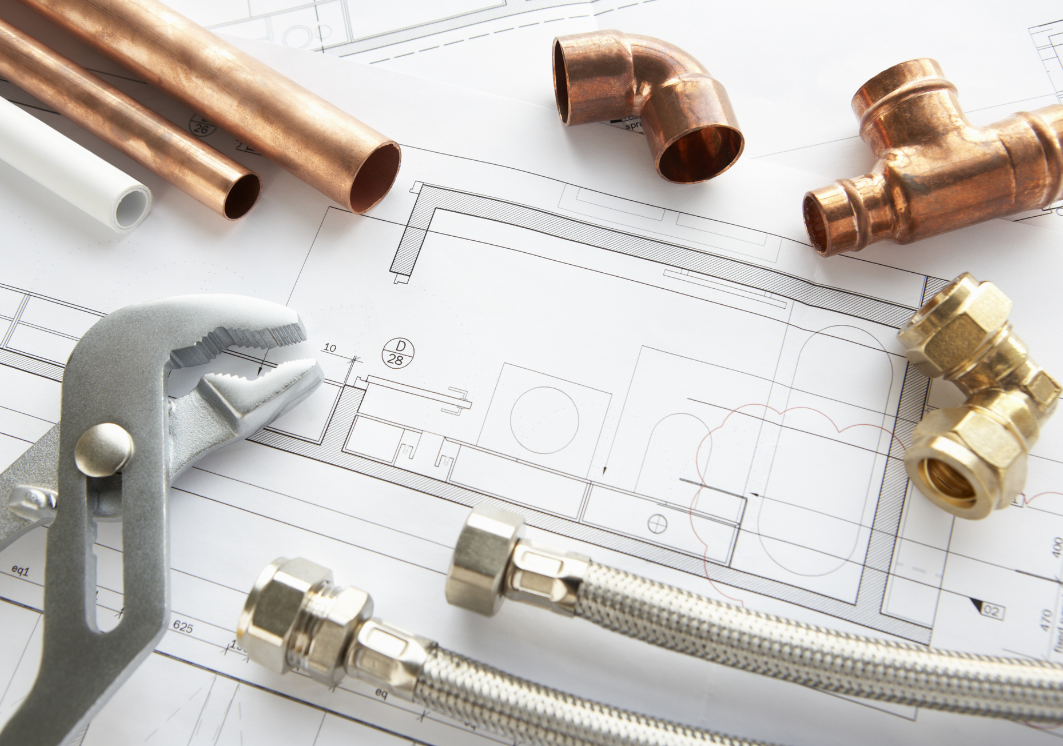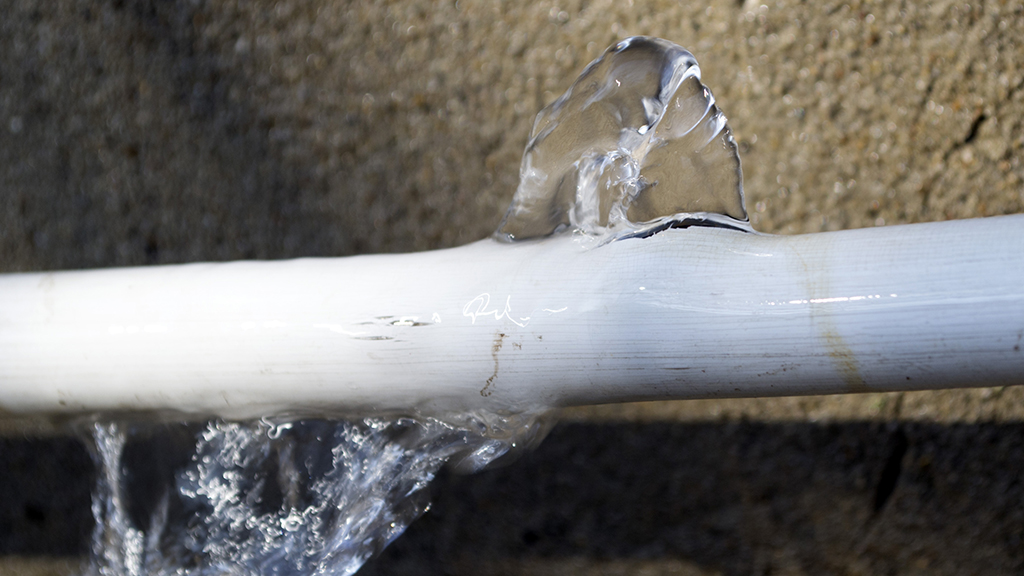how-to-become-a-leak-detector, gain the appropriate training and certification in leak detection techniques. Begin by enrolling in a reputable training program focused on leak detection, such as those offered by professional organizations or industry experts.
Completing hands-on training and obtaining certification will equip you with the necessary knowledge and skills to identify and fix leaks in various settings, from residential to industrial. Keep up-to-date with the latest advancements and techniques in leak detection through continuing education and professional development opportunities.
By gaining the necessary expertise and staying current in the field, you will be well on your way to becoming a skilled and successful leak detector.

Credit: www.rsandrews.com
Importance Of Leak Detection
Detecting leaks is vital for preventing water damage and conserving resources. Becoming a skilled leak detector involves learning to use specialized tools, understanding plumbing systems, and staying updated on industry best practices. With the ability to identify and repair leaks efficiently, you can play a crucial role in promoting environmental sustainability and reducing costly water wastage.
| Importance of Leak Detection |
| Environmental Impact |
| Detecting leaks early is crucial to prevent harm to the environment. |
| Leaks can release harmful substances that pollute air and water sources. |
| By identifying and fixing leaks promptly, you can reduce environmental damage. |
| Cost Savings |
| Leak detection helps save money by minimizing water or energy wastage. |
| Early leak detection can prevent costly damages to property and infrastructure. |
Types Of Leaks
Learn to become a skilled leak detector by identifying different types of leaks. You can acquire the necessary expertise to diagnose and repair leaks with proper training and hands-on experience. Understanding the various sources and signs of leaks will enable you to effectively address them.
| Water Leaks | Gas Leaks | Air Leaks |
| Water leaks refer to the unintentional escape of water from pipes, faucets, or other plumbing fixtures. | Gas leaks involve the release of natural gas or propane, which can be highly flammable and pose a safety risk. | Air leaks occur when air escapes from structures, such as windows, doors, or ventilation systems. |
| Common signs of water leaks include damp areas, water stains, or an unexplained increase in water bills. | Gas leaks are often indicated by the smell of rotten eggs, hissing sounds, or dead vegetation near gas lines. | Air leaks can lead to energy inefficiency, drafty rooms, or difficulty maintaining a consistent temperature. |
| To detect water leaks, you can use tools like moisture meters, conduct a visual inspection, or call a professional plumber. | If you suspect a gas leak, it’s important to evacuate the area immediately and contact qualified technicians for repairs. | To identify air leaks, you can perform a visual inspection, use smoke or thermal detection methods, or consult an energy auditor. |
Developing Leak Detection Skills
Developing Leak Detection Skills: A vital skill to possess in the modern world is the ability to detect leaks. Understanding Common Signs: Recognizing common signs of leaks such as dampness, water stains, or a musty odor is crucial. Utilizing Technology: Embracing technological advancements in leak detection tools and equipment can greatly enhance your skills. By using moisture meters, thermal imaging cameras, and acoustic listening devices, you can effectively identify and locate leaks. Moreover, staying updated with the latest industry trends and best practices will help you refine your leak detection abilities.

Credit: www.researchgate.net
Tools Of The Trade
Looking to become a leak detector? Equip yourself with the essential tools of the trade for effective leak detection. Discover how to spot and fix leaks with precision and accuracy using the right equipment.
| Leak Detection Devices | Safety Equipment |
|---|---|
| Electronic leak detectors | Protective goggles |
| Ultrasonic leak detectors | Gloves and boots |
| Gas leak detectors | Respirators |
Having these tools is essential for safe and efficient leak detection. Always prioritize safety.
Practical Techniques
Visual Inspection: Visual inspection is a key technique in detecting leaks. Look for any visible signs of leakage such as stains, discoloration, or corrosion.
Pressure Testing: Conduct pressure tests to check for any leaks. This involves applying pressure to the system and monitoring for any pressure drops, which may indicate a leak.
Troubleshooting And Problem-solving
To become a leak detector, focus on identifying hidden leaks using proper techniques. Repair solutions should be implemented promptly to prevent further damage.
Industry Best Practices
Industry best practices for becoming a leak detector involve implementing preventative maintenance and documentation procedures. Regularly conducting preventative maintenance checks on equipment and systems is essential to identify and address potential leaks before they become major problems. This can include routine inspections, testing, and calibration of equipment to ensure optimal performance and detect any early signs of leaks.
Documentation is equally crucial in this process, as it allows for tracking and analyzing data related to maintenance activities, repairs, and any identified leaks. By documenting all findings and actions taken, companies can develop a comprehensive history of their systems, enabling them to make informed decisions and identify trends or recurring issues. Ultimately, implementing preventative maintenance and documentation practices is key to becoming a successful leak detector in any industry.
Becoming A Certified Leak Detector
Eager to become a certified leak detector? You can kickstart your journey by enrolling in training and certification programs. These programs provide you with the necessary knowledge and skills to identify and repair leaks effectively. Look for industry-recognized courses that cover various aspects of leak detection, including continuous learning opportunities to stay updated with the latest techniques and equipment.
Training programs typically offer a combination of theoretical and practical modules, allowing you to gain hands-on experience in leak detection. Once you successfully complete the training, you can take the certification exam to earn your official certification as a leak detector.
| Benefits of Training and Certification Programs | Continuous Learning Opportunities |
|---|---|
|
|
Frequently Asked Questions On How To Become A Leak Detector
What Are The Common Signs Of A Water Leak?
Water leaks often manifest as damp spots, mold growth, or unexplained increases in water bills. Stains on walls or ceilings, musty odors, and the sound of running water when no taps are open are also potential indicators of a leak.
How Can I Locate A Water Leak In My Home?
Start by checking for visible signs of water damage, then systematically inspect areas where leaks are commonly found, such as around plumbing fixtures, in the basement or crawl space, and under sinks. You may also use a water leak detector or call a professional for assistance.
Why Should I Hire A Professional Leak Detector?
Professional leak detectors have specialized equipment and expertise to accurately pinpoint hidden leaks. They can identify issues early, preventing costly damage and providing peace of mind. Prompt detection and repair can also lead to significant savings on water bills.
Conclusion
To become a leak detector, you need a blend of knowledge, skills, and expertise. Regular training and staying updated with the latest technologies are key. Remember, attention to detail and patience are crucial in this field. Embrace the challenges and commit to delivering accurate results to your clients.
With determination and experience, you can become a trusted professional in the leak detection industry. Let your passion drive you toward success and personal growth as you embark on this rewarding career journey.
